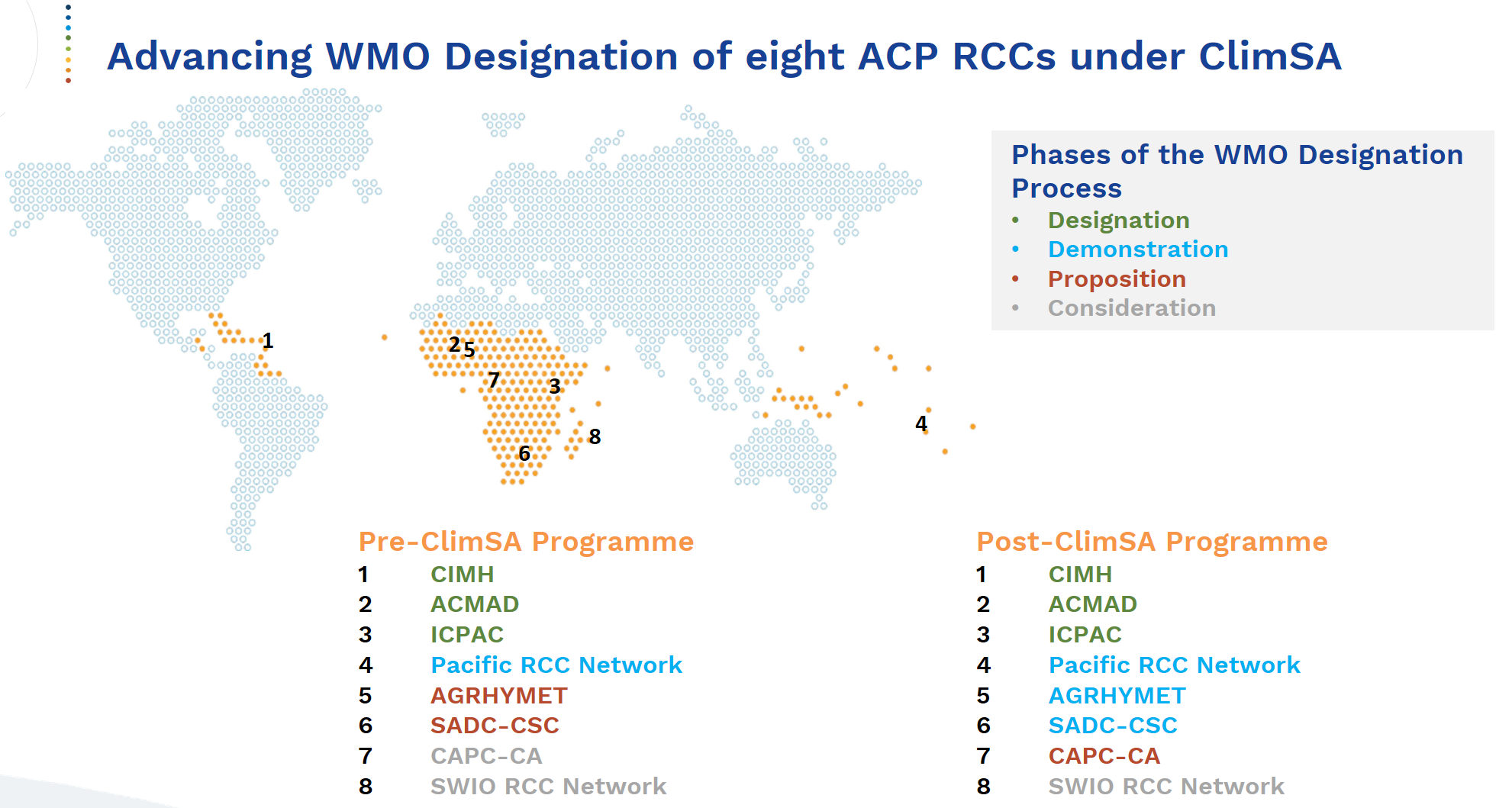A Strategic Investment in Excellence
The designation of a Regional Climate Centre (RCC) as a World Meteorological Organization RCC (WMO-RCC) marks a major achievement in an RCC’s alignment with international standards. It reflects the centre’s ability to provide climate services that meet internationally recognised standards in data management, forecasting and climate information delivery. More than a status, it signals a centre’s readiness to contribute more substantially to national, regional and global efforts in climate adaptation and risk reduction.
The Intra-ACP Climate Services and related Applications (ClimSA) Programme has provided significant support to RCCs across Africa, the Caribbean and the Pacific. This support has been instrumental in strengthening technical operations, institutional frameworks and human resources - all essential elements for WMO designation and the effective delivery of climate services.
The path to designation is deliberately rigorous. It begins with a self-assessment by the applying institution, followed by a formal application and a comprehensive external review by WMO-appointed experts. One of the key steps is the demonstration phase, during which the centre operates under provisional conditions and demonstrates its ability to provide essential services in a real operational environment. This phase is closely monitored and serves as a critical test of institutional readiness.
At the start of the ClimSA Programme (2020), three RCCs in the ACP regions had already achieved WMO designation: the Caribbean Institute for Meteorology and Hydrology (CIMH), the African Centre of Meteorological Applications for Development (ACMAD) and the IGAD Climate Prediction and Applications Centre (ICPAC). The Pacific RCC Network had entered the demonstration phase in 2018. Two regional centres were in the proposed stage, while two others were under consideration.
As the ClimSA Programme draws to a close, the landscape has evolved. The AGRHYMET Regional Centre entered the demonstration phase in 2021, followed by the SADC Climate Services Centre (SADC-CSC) in 2024. The proposed RCC is the Climate Applications and Predictions Centre for Central Africa (CAPC-CA), and the South-West Indian Ocean (SWIO) RCC Network is under consideration.
ClimSA's role in this process has been comprehensive and effective. It supports each centre with tailored technical assistance, enhances capacity for climate data production and service delivery, and promotes the development of institutional and legal frameworks. The Programme also helps the centres improve engagement with key stakeholders and mobilise the resources needed to sustain their operations over time.
The ClimSA Programme continues to align its efforts with the broader objectives of the Global Framework for Climate Services (GFCS), ensuring that RCCs in the ACP regions not only progress towards WMO designation, but do so in a way that supports long-term regional development priorities. While the process is technical in nature, the outcome is far-reaching. Strengthened RCCs are able to provide more consistent, scientifically sound climate services that support planning and preparedness processes. In regions where climate variability has real and recurring impacts, this work strengthens the role of the institutions as trusted providers of actionable climate information.
